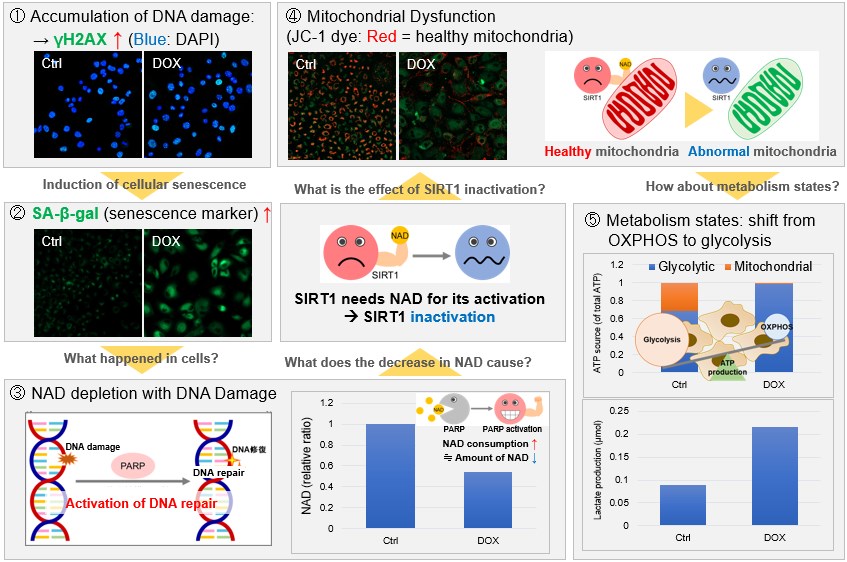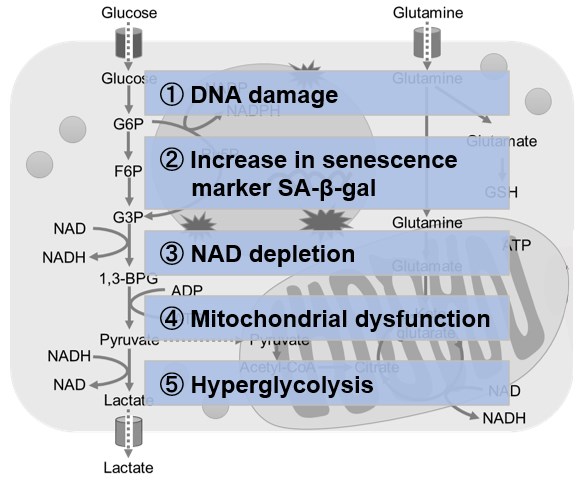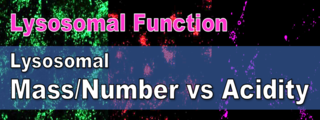|
Anti-senescence strategies often target metabolic pathways to delay or reverse cellular aging processes. Key pathways such as the pentose phosphate pathway (PPP) and mitochondrial metabolism are modulated to reduce oxidative stress and increase cellular resilience. By optimizing these pathways, anti-senescence approaches aim to maintain energy production, prevent accumulation of damage, and preserve stem cell function. Ultimately, these interventions may improve tissue homeostasis and mitigate age-related decline. |
|||
| A homoeostatic switch causing glycerol-3-phosphate and phosphoethanolamine accumulation triggers senescence by rewiring lipid metabolism Click here for the original article: Khaled Tighanimine, et. al., Nature Metabolism, 2024. |
Proline restores mitochondrial function and reverses aging hallmarks in senescent cells Click here for the original article: Debanik Choudhury, et. al., Cell Reports, 2024.
|
Citrate metabolism controls the senescent microenvironment via the remodeling of pro-inflammatory enhancers Click here for the original article: Kan Etoh, et. al., Cell Reports, 2024. |
|
|
Point of Interest - p53-dependent glycerol kinase activation and post-translational modifications drive this metabolic switch, promoting triglyceride accumulation and senescence. - Scavenging G3P and pEtN reduces their accumulation, acting senomorphically and potentially providing a therapeutic approach to target senescence. |
Point of Interest - Proline supplementation induces mitophagy, alleviates mitochondrial respiratory impairment and improves mitochondrial clearance in senescent cells. - Proline treatment mitigates the hallmarks of aging, including DNA damage, inflammation, and impaired differentiation, by restoring mitochondrial function. |
Point of Interest - ACLY-dependent acetyl-CoA activates SASP gene enhancers, increasing BRD4 recruitment and promoting SASP activation. - Chemical inhibition of the ACLY-BRD4 axis suppresses SASP in aged mice, providing a potential target for promoting healthy aging.
|
|
| Related Techniques | |||
| Cellular senescence detection | SPiDER-βGal for live-cell imaging or flow cytometry / microplate reader / tissue samples. | ||
| Mitochondrial membrane potential detection | JC-1 MitoMP Detection Kit, MT-1 MitoMP Detection Kit | ||
| First-time autophagy research | Autophagic Flux Assay Kit | ||
| Lysosomal function | Lysosomal Acidic pH Detection Kit-Green/Red and Green/Deep Red | ||
| Glycolysis/Oxidative phosphorylation Assay | Glycolysis/OXPHOS Assay Kit | ||
| Oxygen Consumption Rate(OCR) Plate Assay | Extracellular OCR Plate Assay Kit | ||
| Lipid Droplet detection | Lipid Droplet Assay Kit - Blue / Deep Red | ||
| Glutathione Quantification | GSSG/GSH Quantification Kit | ||
| Total ROS detection | Highly sensitive DCFH-DA or Photo-oxidation Resistant DCFH-DA | ||
| Endocytosis Detection detection | ECGreen-Endocytosis Detection | ||
| Related Applications | |||
Metabolic shift to glycolysis in senescenct cells |
|||
|
|
NAD(+) levels decline during the aging process, causing defects in nuclear and mitochondrial functions and resulting in many age-associated pathologies*. Here, we try to redemonstrate this phenomenon in the doxorubicin (DOX)-induced cellular senescence model with a comprehensive analysis of our products. *S. Imai, et al., Trends Cell Biol, 2014, 24, 464-471
|
||
 |
|||
















